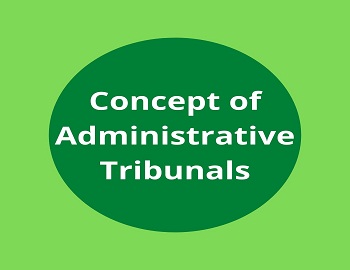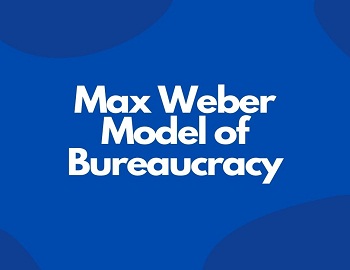Table of Contents
Auxiliary or House-Keeping Agencies:
Along with Line and Staff Agencies, Auxiliary Agencies have also become an integral part of the contemporary system of administration. In fact, the practice of making a difference between Staff and Auxiliary Staff has been a recent practice. Most of the scholars now make a distinction between Staff and Auxiliary Services.
Auxiliary Agencies provide common, housekeeping services to all agencies. In order to perform their primary activity, all agencies require certain common, housekeeping auxiliary services like construction and maintenance of buildings, typing, budgeting, and so on. All these activities are necessary for the achievement of the primary objectives of an organization. These services are called Auxiliary services. Willoughby calls them institutional, or housekeeping services. Gaus prefers to designate them as Auxiliary Technical Staff Services. However, the more popular name happens to be Auxiliary Services or Agencies. It was initially suggested by Prof. L.. D. White and later on adopted by many other scholars.
Auxiliary Agencies Meaning:
The Auxiliary Agencies or Services do not serve the public. They serve the Line Agencies in the shape of performing necessary functions like buying goods and making supplies. Thus Auxillary Agencies are in a sense operating agencies as they are concerned with the performance of routine activities of the government such as the collection and disbursement of revenue, the custody of funds, the supervision of expenditure, recruitment, and promotion of the personnel, etc.
The dictionary meaning of the word ‘auxiliary’ is helpful or subsidiary. In this way, we can say the Auxiliary Agencies are the ones that play a helping role in the working of Line Agencies. They carry out routine work for the Line Agencies like buying of goods and making supplies.
We can understand the true nature of Auxiliary Agencies by discussing their features and differentiating them from Staff and Line Agencies.
Features of Auxiliary Agencies:
Following are the salient features of Auxiliary Agencies.
(1) Auxiliary Agencies provide common house-keeping services to the Line Agencies- Auxiliary Agencies provide common secondary help and subsidiary house-keeping services to the Line Agencies. For example, in a university, there are many teaching departments. All these departments need buildings, repairs, books, furniture, and stationery. These are the common housekeeping services that are performed by Auxiliary Agencies like the Stores Department, Construction Department, and others.
(2) Auxiliary Agencies exercise limited authority and make decisions in their own Sphere- Staff Agencies have only an advisory role and have no authority. Contrary to this, Auxiliary Agencies have a limited role authority that they exercise while carrying out their functions. They work as the agents of Line Agencies and make decisions on behalf of them.
(3) Auxiliary Agencies act as helping operational Agencies- Auxiliary Agencies are, in fact, operational agencies as they are concerned with the performance of some routine activities of the government, like purchases, supplies, personnel matters, budgeting, etc.
(4) Auxiliary Agencies do not directly serve the People- Although Auxiliary Agencies may deal with citizens, yet they do not serve the people. They serve the Line Agencies. They assist and help the line in carrying out their functions. They perform secondary functions for them. They also work as agents of the Staff Agencies. But they do not directly serve the people.
(5) Auxiliary Agencies stand placed under the Chief Executive- Auxiliary Agencies stand placed under the Chief Executive. For Example, the government of India has four main auxiliary departments: the Law Ministry, the Ministry of Information, and Broadcasting, the Department of Parliamentary Affairs, and the Central Public Works Department. These ministers work under the control of the Chief Executive.
Distinction Between Auxiliary Agencies and Staff Agencies:
There are divergent views regarding the real distinction between Staff Agencies and Auxiliary Agencies. Scholars like Pfiffner, Presthus, and others do not even differentiate between these two. Pfiffner places Auxiliary Agencies within the broad ambit of Staff Agencies because both these agencies help and assist the Line Agencies in carrying out their functions. Moreover, the functions of Auxiliary and Staff Agencies are basically secondary in nature. Neither serves the people. Both of them serve the Line Agencies.
In spite of these similarities, there is a subtle difference between the Staff and Auxiliary Agencies. The Staff Agencies are responsible for advising and assisting the Chief Executive, whereas the Auxiliary Agencies are responsible for maintaining the existing organization in order. The following points of difference between Staff and Auxiliary Agencies can be identified.
(1) Staff Agencies aid, assist and advise the Line Agencies whereas Auxiliary Agencies provide common house-keeping services to the Line Agencies. Advice is the major function of the Staff whereas service is the major function of Auxiliary Agencies.
(2) Staff Agencies do not exercise authority. They do not make decisions. They only help and advise the Line Agencies in making decisions whereas in carrying out their services to the Liner Agencies, Auxiliary Agencies make some decisions relating to their own sphere of activity, Auxiliary Agencies exercise limited authority while Staff Agencies do not exercise any authority except the Chief Executive wants them to do so.
(3) Staff Agencies have no operational responsibilities whereas Auxiliary Agencies have mainly operating responsibilities.
Staff Agencies are primarily concerned with advising the Chief Executive in respect of reforms in the administration’s organization and methods. They assist and advise the Chief Executive in the formulation of policies, decisions, plans, and programmes. On the other hand, Auxiliary Agencies render routine services to the Line Agencies. Staff Agencies work for securing reforms in the administration while Auxiliary Agencies work for maintaining existing organization and administration in order.
Distinction Between Auxiliary Agencies and Line Agencies:
Line Agencies are those which perform primary functions in order to achieve the purpose for which the administration exists and works. Their activities are primary. On the other hand, Auxiliary Agencies are those which perform routine service for the Line Agencies. These perform housekeeping functions for the Line units.
The following clear-cut points of distinction between Auxiliary Agencies and Line Agencies can be identified:
- Line Agencies are an end in themselves while Auxiliary Agencies are the only means to that end.
- Auxiliary Agencies work as subsidiaries or helpful agencies to Line Agencies.
- Each Line Agency performs its specifically assigned primary functions, while Auxiliary Agencies perform common housekeeping functions for all the Line Agencies.
- Line Agencies deal directly with the people. Auxiliary Agencies serve the Line units. Their interaction with the people is indirect and incidental to their work.
- The work of the Auxiliary Agencies is governed by the objective of helping the Line Agencies directly. The Line Agencies get service from the Auxiliary Agencies.
As such, Auxiliary Agencies are different from both Line and Staff Agencies, they are neither purely Staff nor line in their character and working. In this era of the division of labor, functional and structural differentiation, and specialization, it is in the interest of Public Administration to recognize and accept the distinction between Line, Staff, and Auxiliary Agencies.
However, these distinctions are not to be taken as organic because they have similarities and all of these are instruments through which the administration of the state gets operationalized and serves the people of the land. Staff Agencies are concerned mainly with the process of reform in the organization and methods of administration. They not only form the major policies but also suggest improvements in future plans of the country. Example- The Planning Commission of India suggests ways and means to the government to improve future planning and to find revenue to meet the needs of planning. Line Agencies carry out the main work and Auxiliary agencies help Line Agencies by providing general housekeeping activities.









Comments (No)